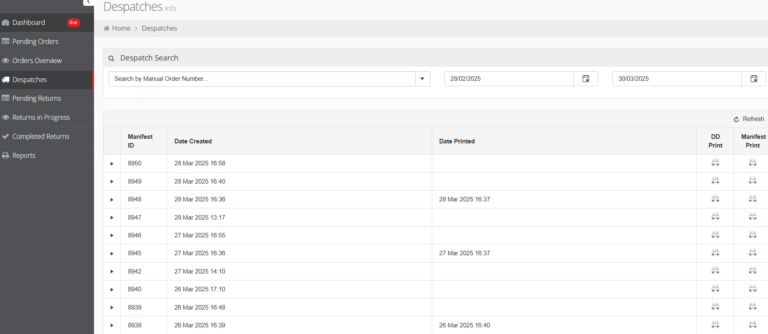Integrating AI into Timber Processing and Sales: Revolutionizing Efficiency and Profitability

The timber industry has traditionally relied on manual processes and legacy systems, which often lead to inefficiencies, errors, and lost opportunities. However, with advancements in Artificial Intelligence (AI), the landscape is rapidly changing. Integrating AI into timber processing and sales software can help businesses optimize operations, reduce waste, and make data-driven decisions, ultimately leading to higher profitability and sustainability.
1. The Challenges in Timber Processing and Sales
The timber industry faces several challenges, such as fluctuating demand, variable raw material quality, and complex supply chain dynamics. These issues can lead to inefficiencies in processing, inventory management, and sales forecasting. Traditional software solutions often lack the capability to adapt to these dynamic factors in real-time, resulting in lost revenue and increased operational costs.
2. How AI Enhances Timber Processing
AI-driven timber processing software can analyze data from sensors and equipment to optimize the cutting and sorting of timber. Machine learning algorithms can predict the best processing methods based on the quality of raw materials and desired output, reducing waste and maximizing yield. For example, AI algorithms can automatically adjust saw blade positions and processing speed to achieve optimal cuts, resulting in higher-grade timber and reduced scrap rates.
Key Benefits:
- Improved Yield: AI ensures that every piece of timber is used to its fullest potential.
- Reduced Waste: Machine learning algorithms minimize waste by predicting the most efficient cuts.
- Enhanced Quality Control: AI monitors and adjusts processing in real-time to maintain consistent quality.
3. AI in Sales Forecasting and Inventory Management
For timber sales, AI can revolutionize sales forecasting by analyzing historical sales data, market trends, and external factors like weather and economic conditions. This helps businesses better predict demand, manage inventory levels, and reduce stockouts or overstock situations. AI-powered inventory management systems can automatically reorder supplies, ensuring the right balance between demand and stock levels.
Key Benefits:
- Accurate Demand Forecasting: AI models provide precise forecasts, helping businesses plan better.
- Optimized Inventory Levels: Reduced overstock and stockouts through intelligent inventory management.
- Data-Driven Pricing: AI can analyze market trends to suggest dynamic pricing strategies that maximize profitability.
4. Enhancing Customer Experience with AI-Driven Insights
AI integration also enhances the customer experience by providing personalized recommendations based on past purchases, preferences, and market trends. With the help of AI, sales teams can better understand customer needs and offer tailored solutions, improving customer satisfaction and loyalty. Additionally, AI-powered chatbots and virtual assistants can handle routine customer inquiries, freeing up sales teams to focus on more strategic activities.
Key Benefits:
- Personalized Recommendations: AI-driven insights allow for targeted marketing and sales.
- Improved Customer Service: Chatbots and AI-driven assistants handle queries efficiently.
- Enhanced Customer Loyalty: Meeting customer needs accurately leads to higher satisfaction and retention.
5. Predictive Maintenance for Equipment in Timber Processing
One of the most significant advantages of integrating AI into timber processing software is predictive maintenance. By analyzing data from machinery sensors, AI can predict when a machine is likely to fail and recommend maintenance before a breakdown occurs. This not only reduces downtime but also extends the life of expensive equipment, saving costs on repairs and replacements.
Key Benefits:
- Reduced Downtime: Proactive maintenance reduces unplanned downtime, increasing productivity.
- Cost Savings: Early detection of potential failures helps avoid costly repairs.
- Longer Equipment Lifespan: Predictive insights extend the operational life of machinery.
6. Real-Time Data Analytics for Strategic Decision-Making
AI-driven real-time data analytics provides decision-makers with actionable insights to make strategic choices. From optimizing supply chain operations to determining the most profitable sales channels, AI enables a holistic view of the business, empowering leaders to make data-backed decisions quickly and effectively.
Key Benefits:
- Actionable Insights: Real-time data analytics provide deep insights for better decision-making.
- Strategic Planning: Understand market dynamics and plan for future growth.
- Competitive Advantage: Stay ahead of competitors by leveraging advanced AI capabilities.
7. Future of AI in Timber Processing and Sales
The integration of AI in timber processing and sales software is not just a trend but a necessity for businesses looking to stay competitive in the evolving market. As AI technology continues to advance, companies can expect even more sophisticated tools that will further enhance efficiency, reduce costs, and increase profitability.
Want to Learn More About AI-Driven Timber Processing Solutions?
At Kiwisoft Evolution, we specialize in developing AI-powered software solutions for the timber industry. Our software integrates cutting-edge AI technologies to optimize processing, enhance sales, and improve overall business efficiency. Contact us today to see how we can help you harness the power of AI in timber processing and sales.




